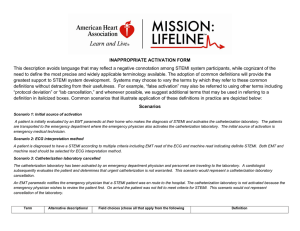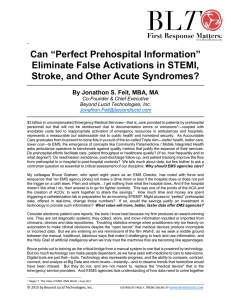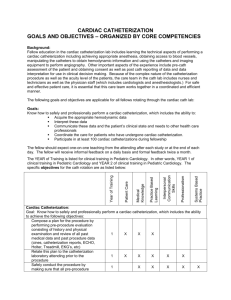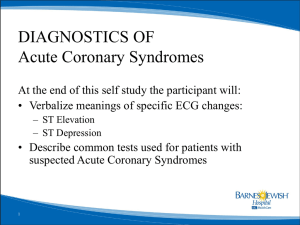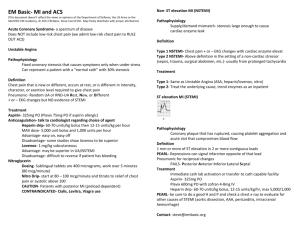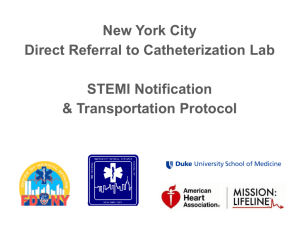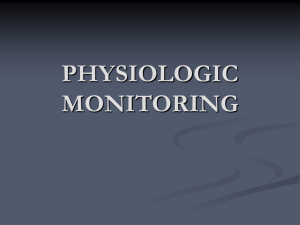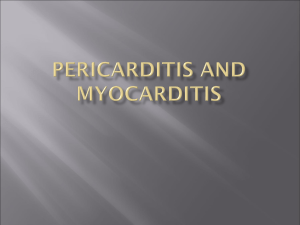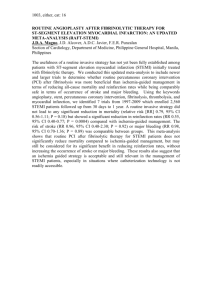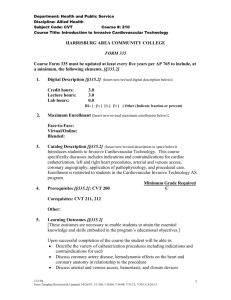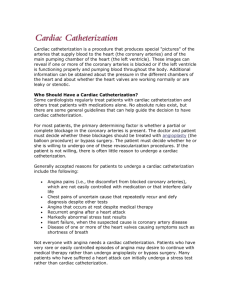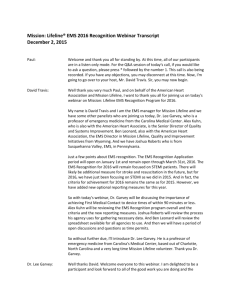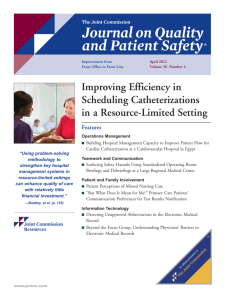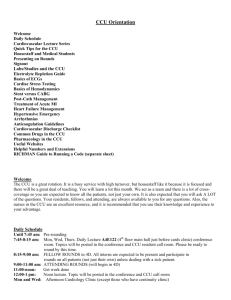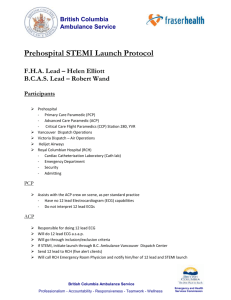eastern wi mission lifeline: stemi overtriage form
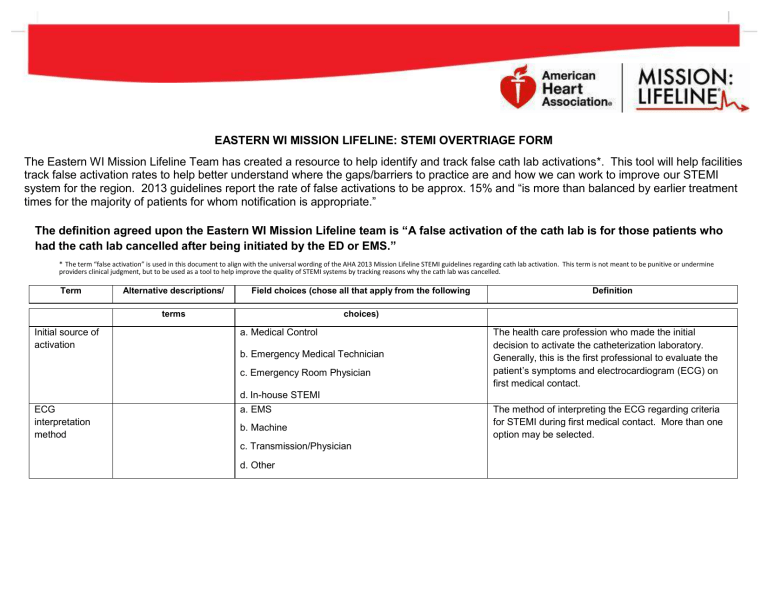
EASTERN WI MISSION LIFELINE: STEMI OVERTRIAGE FORM
The Eastern WI Mission Lifeline Team has created a resource to help identify and track false cath lab activations*. This tool will help facilities track false activation rates to help better understand where the gaps/barriers to practice are and how we can work to improve our STEMI system for the region. 2013 guidelines report the rate of false activations to be app rox. 15% and “is more than balanced by earlier treatment times for the majority of patients for whom notification is appropriate.”
The definition agreed upon the Eastern WI Mission Lifeline team is “A false activation of the cath lab is for those patients who had the cath lab cancelled after being initiated by the ED or EMS .”
* The term “false activation” is used in this document to align with the universal wording of the AHA 2013 Mission Lifeline STEMI guidelines regarding cath lab activation. This term is not meant to be punitive or undermine providers clinical judgment, but to be used as a tool to help improve the quality of STEMI systems by tracking reasons why the cath lab was cancelled.
Term Alternative descriptions/ Field choices (chose all that apply from the following Definition
Initial source of activation
ECG interpretation method terms choices) a. Medical Control b. Emergency Medical Technician c. Emergency Room Physician d. In-house STEMI a. EMS b. Machine c. Transmission/Physician d. Other
The health care profession who made the initial decision to activate the catheterization laboratory.
Generally, this is the first professional to evaluate the patient’s symptoms and electrocardiogram (ECG) on first medical contact.
The method of interpreting the ECG regarding criteria for STEMI during first medical contact. More than one option may be selected.
Reason catheterization laboratory cancelled.
Positive cardiac enzymes
Patient for whom the catheterization laboratory should not be activated.
Inappropriate patient for catheterization a. The patient did not have ST segment elevation
(discordance in ECG interpretation) b. The patient did not have ischemic type chest pain (discordance in symptom interpretation) c. Resolution of chest pain and / or ST segment elevation d. Death e. Do not resuscitate status f. Unwilling to undergo catheterization g. Unable to obtain consent for the procedure h. Severe dementia i. Combative / uncooperative patient j. Active bleeding k. Severe co-morbid or terminal illness l. Protocol deviation m. Other a. Yes b. No c. Not available d. Not applicable a. No b. Not available c. Not applicable
Principal or most likely reason catheterization laboratory was cancelled.
Elevation of specific markers for myocardial necrosis according to the ACC / ESC definitions for type 1 myocardial infarction including elevation of creatine kinase-MB or troponin above the 99 th percentile.
Values exceeding individual hospital ranges are sufficient and meet the criteria for positive cardiac enzymes.
[J Am Coll Cardiol 2000;36:959 –69.]
A patient for whom emergent catheterization cannot be performed for reasons obvious to the health care professional during the first medical contact including 1) do not resuscitate status, 2) unwilling to undergo catheterization, 3) neither the patient nor their proxy are able to consent for the procedure, 4) severe dementia,
5) combative / uncooperative patient, 6) active bleeding, 7) severe comorbid or terminal illness.
